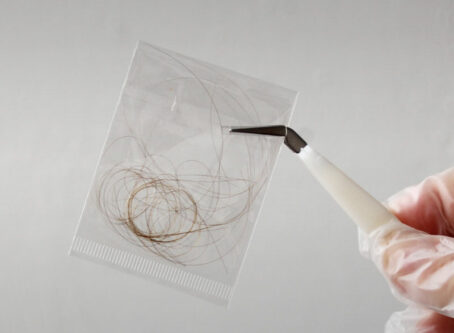Hair testing ‘scientifically unreliable and discriminatory’
The Owner-Operator Independent Drivers Association has maintained a clear message that hair testing is scientifically unreliable and should not be allowed in lieu of urinalysis for pre-employment screenings of truck drivers.
But OOIDA isn’t the only group that holds this negative view of hair testing.
The Lawyers’ Committee for Civil Rights and Economic Justice based out of Boston shares OOIDA’s opinion.
“Hair testing is scientifically unreliable and discriminatory,” said Oren Sellstrom, the litigation director for the Lawyers’ Committee.
Meanwhile, the Trucking Alliance has been reportedly lobbying Congress to introduce legislation that would allow truckers to receive hair testing.
In 2017, several big fleets, including J.B. Hunt Transport, Schneider National Carriers, Werner Enterprises, Knight Transportation, Dupre Logistics and Maverick Transportation, requested that the FMCSA grant them an exemption to allow them to use hair testing in lieu of urinalysis for pre-employment screenings of truck drivers.
OOIDA spoke out against the exemption request at the time, and so did the Lawyers’ Committee.
Ivan Espinoza-Madrigal of the Lawyers’ Committee and Larry Willis of the Transportation Trades Department teamed up to write an opinion piece against hair testing for The Hill in 2017.
“Imagine being denied work – not because of your qualifications or work history, but because a drug test required for employment comes back positive for a drug you never used,” Espinoza-Madrigal and Willis wrote. “Now imagine learning that the test result could have been influenced by the color and texture of your hair.
“Sadly, this isn’t a plot for a sci-fi movie.”
The article says several African-American Boston Police officers lost jobs because of false positives from department-required hair tests.
In 2013, six of those officers were reinstated by the Massachusetts Civil Service Commission after they determined the testing was unreliable. The following year, the U.S. Court of Appeals for the First Circuit favored on the side of the police officers.
In the Boston case, African-American officers were much more likely to test positive for cocaine.
“The real issue with the scientific unreliability comes from the failure of the test to be able to distinguish between external contamination and ingestion. The hair test measures the presence of drug and drug metabolites in the hair,” Sellstrom said. “But the problem is that it doesn’t tell you how they got into the hair. With cocaine, in particular, the existence of cocaine and cocaine metabolites are quite common in the general environment. There have been studies showing that 50 percent or more of dollar bills have cocaine residue or particles on them. That can easily get into hair by external means. So that is not a reliable indicator that someone has actually ingested drugs. The risk of a false positive is heightened for African-American individuals due to the nature of their hair.”
Sellstrom said hair testing is unreliable in general and especially for African-Americans. He added that relying on hair testing alone to determine employment would be “highly vulnerable to legal challenge.”
“If you’re trying to use it as the measure by which if someone tests positive they are terminated or denied some kind of license, that’s where it’s highly problematic and, in our view, illegal.”









